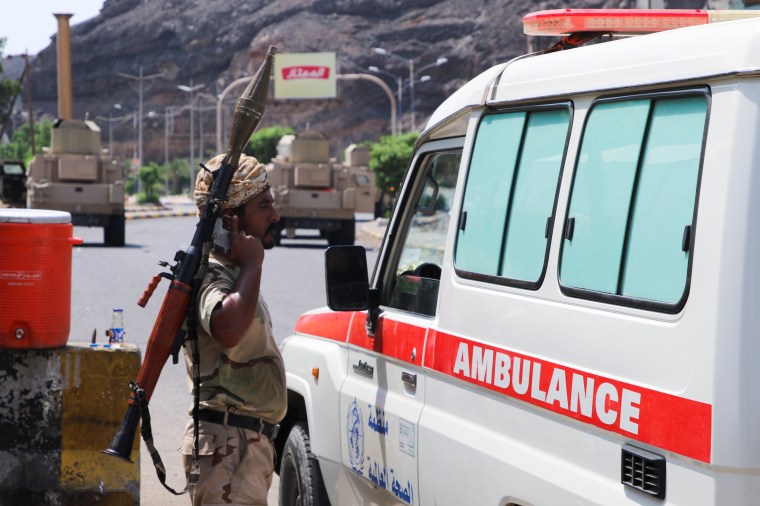New York, November 10, 2021 – All parties to the conflict in Yemen must stop attacking members of the press, and must ensure that journalist killings are thoroughly investigated and those responsible brought to account, the Committee to Protect Journalists said today.
Yesterday, journalist Rasha Abdullah al-Harazi was killed in a car bomb attack while she was driving through the Khor Makser neighborhood of the southern port city of Aden, according to reports by Reuters, The Associated Press, and the independent Yemeni newspaper Al-Masdar.
Al-Harazi was pregnant at the time, those reports said. Her husband, Mahmoud al-Atmi, who is also a journalist, was seriously injured in the blast and has been hospitalized, according to those reports.
No group has claimed responsibility for the attack, according to the AP.
“Rasha Abdullah al-Harazi’s horrific killing and Mahmoud al-Atmi’s grievous injuries illustrate how Yemeni journalists face death daily by simply living in their home country and covering the news,” said CPJ Senior Middle East and North Africa Researcher Justin Shilad. “All parties to Yemen’s conflict must stop killing journalists, and international institutions and their member states must stop burying their heads in the sand and immediately work toward accountability for these crimes.”
Al-Harazi worked for the Emirati news channels Al-Ain and Al-Sharq, according to the AP and a report by the Saudi satellite news channel Al-Arabiya. She worked as a photographer and camera operator for Al-Ain, and also for the U.A.E.-based Bloomberg Asharq, a collaboration between the U.S. business news wire and the Saudi government-tied Saudi Research and Media Group, according to a person familiar with her work who spoke to CPJ on the condition of anonymity, citing security reasons.
Al-Atmi contributes to Al-Arabiya and the Saudi news channel Al-Hadath, according to that Al-Arabiya report.
Al-Atmi previously received threats from the Ansar Allah group, known as the Houthis, according to Al-Masdar. After the attack, Yemeni journalist Bassem al-Janani posted screenshots on Twitter purporting to show al-Atmi describing how members of the Houthis had been asking for information about his address in Aden and a description of his car.
Al-Janani wrote that he told al-Atmi to leave Aden, but al-Atmi responded that he could not because his wife was about to give birth to their second child.
CPJ contacted al-Janani via messaging app, but did not immediately receive any response.
Initial reports stated that the couple’s son Jawad was also killed in the blast, but the person who spoke to CPJ said that Jawad was not in the car at the time.
Aden is controlled by the secessionist Southern Transitional Council, a group that agreed to a power-sharing arrangement with the internationally recognized Yemeni government in 2019; that deal was never fully implemented, and the council operates autonomously with its own security forces and allied militias, according to news reports.
When contacted via messaging app, Southern Transitional Council spokesperson Mansour Saleh told CPJ that the council strongly condemned the bombing and that its security forces were investigating it.
Southern Transitional Council President Aydarous al-Zubaidi ordered the council to cover the costs of al-Atmi’s medical treatment, Saleh said.
At least 19 journalists have been killed in Yemen since conflict broke out in 2014, and at least two were killed in Aden last year, according to CPJ research.
Last month, the U.N. Human Rights Council voted to end the mandate for the Group of Eminent Experts on Yemen, in effect removing the only independent international accountability mechanism for human rights abuses committed by all sides during the conflict.
